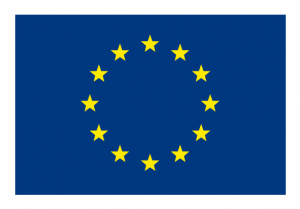 Sometimes it just isn’t possible to get out of the office to attend events. Thankfully, the EC acknowledge this and post many of their presentations online! The FP7 Capacities info day was held a number of weeks ago and all presentations are available here
Sometimes it just isn’t possible to get out of the office to attend events. Thankfully, the EC acknowledge this and post many of their presentations online! The FP7 Capacities info day was held a number of weeks ago and all presentations are available here
Category / EU
Welcome to the EU section of the blog! Emily Cieciura (BU’s Research Facilitator – EU and International), Jo Garrad (Funding Development Manager) and Dianne Goodman (Funding Development Co-ordinator) together try to take the pain out of finding and applying for EU funding by horizon scanning many sources and placing the most important information on this page.
We blog as often as possible on everything from calls for proposals and partner searches, to networking event opportunities, all the latest on Horizon 2020 and international funding. We also use the blog to disseminate information on EUADS (BU’s EU academic training initiative), how to write brilliant proposals, how to find partners and other top tips!
ICT SMEs in Horizon 2020
 As many of you will know from my previous blogposts, I am always emphasising the importance of enagaging SMEs for Horizon 2020. Last week the EC has funded a survey aimed at increasing the participation of innovative companies from the information and communications technologies (ICT) in future research programmes. The survey aims to identify and characterise highly innovative ICT companies that do not participate in Framework projects, and assess their reasons for non-involvement. This is expected to feed into recommendations to improve the participation of SMEs in Horizon 2020, in a final report due in February 2013.
As many of you will know from my previous blogposts, I am always emphasising the importance of enagaging SMEs for Horizon 2020. Last week the EC has funded a survey aimed at increasing the participation of innovative companies from the information and communications technologies (ICT) in future research programmes. The survey aims to identify and characterise highly innovative ICT companies that do not participate in Framework projects, and assess their reasons for non-involvement. This is expected to feed into recommendations to improve the participation of SMEs in Horizon 2020, in a final report due in February 2013.
This is further evidence that enagaging SMEs in your Horizon 2020 proposals will be essential, so start networking now 🙂
EPSRC UK-India partnership in smart energy grids and energy storage technologies
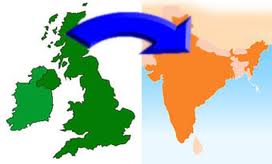 The EPSRC, under the Research Council UK’s energy programme, and the Department of Science and Technology, New Delhi, have launched a joint call for proposals for their UK-India partnership in smart energy grids and energy storage technologies. This seeks to strengthen collaboration between UK and Indian research institutions within an overarching focus on research relating to smart energy grids and energy storage technologies. Proposals must address one of the following areas:
The EPSRC, under the Research Council UK’s energy programme, and the Department of Science and Technology, New Delhi, have launched a joint call for proposals for their UK-India partnership in smart energy grids and energy storage technologies. This seeks to strengthen collaboration between UK and Indian research institutions within an overarching focus on research relating to smart energy grids and energy storage technologies. Proposals must address one of the following areas:
•appropriate distributed storage technologies;
•on/off grid energy systems;
•DC networks;
•control and communications.
Projects must be joint activities involving research groups from both India and the UK, and must involve personnel exchange between the Indian and UK partners. All proposals must be for consortia, with equal or proportionate participation from UK and Indian researchers. UK applicants must be the principal investigator or co-investigator on a current Research Council award. Higher education institutions, some Research Council institutes and independent research organisations are eligible to apply.
The costs for UK institutions will be met by EPSRC, and those for Indian institutions will be met by DST. EPSRC will contribute up to £5 million for this call over a three-year period with matched resources from DST. The deadline is 15.11.12
Work in labs? Got links in Africa? Then this will be good news for you!
 A £15.3 million (US$24 million) fund to build links between African research laboratories and strengthen their research capacity through mentoring has been launched by the Royal Society (the UK’s science academy) and the UK Department for International Development (DFID). The aim is to provide equipment and training for African scientists, and to establish researcher exchange programmes between the United Kingdom and Sub-Saharan Africa. Start-up grants of up to US$39,000 will assist the formation of research consortia, and larger grants of almost US$2 million will then support specific research programmes over a five-year period. To qualify for the larger grants, projects must involve a consortium of one UK laboratory and three African laboratories. Calls for proposals will be launched in November, but keep an eye on the DFID website for more announcements.
A £15.3 million (US$24 million) fund to build links between African research laboratories and strengthen their research capacity through mentoring has been launched by the Royal Society (the UK’s science academy) and the UK Department for International Development (DFID). The aim is to provide equipment and training for African scientists, and to establish researcher exchange programmes between the United Kingdom and Sub-Saharan Africa. Start-up grants of up to US$39,000 will assist the formation of research consortia, and larger grants of almost US$2 million will then support specific research programmes over a five-year period. To qualify for the larger grants, projects must involve a consortium of one UK laboratory and three African laboratories. Calls for proposals will be launched in November, but keep an eye on the DFID website for more announcements.
FI- WARE are looking for additional partners
 FI-WARE, the core platform of the future internet, invites proposals through the Directorate-General for Information Society and Media for its open call for additional partners. FI-WARE has reserved a portion of its budget to fund specific tasks carried out by a new beneficiary or beneficiaries, who will join the consortium after starting the project. Topics for this call are:
FI-WARE, the core platform of the future internet, invites proposals through the Directorate-General for Information Society and Media for its open call for additional partners. FI-WARE has reserved a portion of its budget to fund specific tasks carried out by a new beneficiary or beneficiaries, who will join the consortium after starting the project. Topics for this call are:
•advanced web-based user interface generic enablers, for which funding is worth up to €2.75 million;
•steam-oriented GEs, for which funding is worth up to €2.25m;
•cloud proxy extended development and management platform GE, for which funding is worth up to €1m.
The deadline is 07.11.12; to find out more info check out the FI-WARE webpage.
Lifelong Learning programme Grundtvig funding available
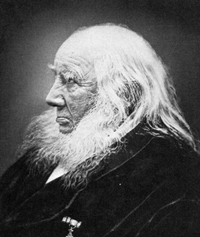 Adult Education Learner Workshops: Any organisation involved in adult education provision can apply for funding through the Grundtvig programme to host interactive learning workshops for European participants on a specific educational theme. Workshop themes could include; active citizenship and intercultural dialogue; language learning; discussion groups on issues of common European interest; basic number, literacy and ICT skills for personal development; and visual and creative arts. Funding of approximately 9,000 Euro is available towards the preparation and management of a Learner Workshop and the travel and subsistence costs of each participant. Funding is also available for cultural and linguistic preparation as well as special assistance based on the needs of the individual. The closing date for applications is the 21st February 2013 and the Learner Workshop must be held before the 31st August 2014.
Adult Education Learner Workshops: Any organisation involved in adult education provision can apply for funding through the Grundtvig programme to host interactive learning workshops for European participants on a specific educational theme. Workshop themes could include; active citizenship and intercultural dialogue; language learning; discussion groups on issues of common European interest; basic number, literacy and ICT skills for personal development; and visual and creative arts. Funding of approximately 9,000 Euro is available towards the preparation and management of a Learner Workshop and the travel and subsistence costs of each participant. Funding is also available for cultural and linguistic preparation as well as special assistance based on the needs of the individual. The closing date for applications is the 21st February 2013 and the Learner Workshop must be held before the 31st August 2014.
Grundtvig In-Service Training Grants: Individuals involved in adult education provision have the opportunity to apply for grants through the Grundtvig In-service training programme to attend practical skill-based courses in a European country and provide personal development opportunities. The funding is available to individuals involved in both formal or in-formal adult education and can include teachers or trainers; managerial or administrative staff from an adult education provider; a member of staff working with adults with special learning needs; or those intending to work in adult education in the future. There are 3 deadlines for applications each year. The next deadline for applications is 17 September 2012.
Grundtvig Preparatory Visits: Grundtvig is a European Union programme that funds training opportunities for UK adult education organisations, staff & learners. UK organisation involved in non-vocational adult education that want to meet partners prior to submitting a Grundtvig Partnership or Senior Volunteering application, or to attend a Contact Seminar to find new partner can apply for funding to undertake a preparatory visit. Organisations wishing to undertake a Preparatory Visit can apply for funding of up to 1,200 Euro. An example of a preparatory visit was from Gingerbread Northern Ireland who used a Preparatory Visits grant to visit potential project partners in Belgium. They met to discuss a collaborating on a Grundtvig Learning Partnership. Organisations must submit their funding application to the UK National Agent (ECOTEC) at least 8 weeks before the activity start date.
Funding for Adult Education Staff Placements in Other European Countries: Adult Education organisations can apply for funding to send individuals on work placements in an adult education organisation in another European country. Funded through the Grundtvig Assistantships programme, placements are for between 13 and 45 weeks. Grundtvig Assistantships are for those at any stage in their career who are already working on a part time or full-time basis anywhere in the informal and formal non-vocational, adult education sector. This applies to volunteer staff as well as those who are formally employed. The amount of funding available is determined by the duration of an Assistantship and the country in which it is to be undertaken. The funding available is intended as a contribution to the costs involved in an Assistantship, this can include; travel to and from the host country; visa costs; local travel during the Assistantship; travel insurance; and accommodation and general living The deadline for applications is the 28th March 2013.
Grundtvig Visits and Exchange Grants :Adult education staff who want to improve their practical skills and to gain a broader understanding of lifelong learning across Europe can apply for funding to attend a seminar, conference, job shadowing and training in another European country. Visits and Exchange grants are offered under the Grundtvig part of the Lifelong Learning Programme. The Grundtvig programme aims to strengthen the European dimension in adult education. Funding is open to those involved in adult education. Activities can last between one day and twelve weeks and are a great way for you to improve teaching, coaching, counselling or mentoring skills. Grants are available to contribute towards the total costs incurred, including conference or seminar fees, travel, subsistence and other costs. An illustration of a project is where a lecturer from Aberdeen went to job shadow social pedagogy experts and to learn about the Danish educational system. Applications can be made throughout the year, up to 12 weeks before the activity begins, until 14th December 2012?.
COST pilot evaluation and selection scheme for interdisciplinary proposals
 COST (European Co-operation in Science and Technology) has announced the launch of a pilot evaluation and selection scheme for interdisciplinary proposals. You may remember from my earlier posts on COST, that this is a funding source which offers support for networks centred around nationally funded research projects in fields that are of interest to at least five COST countries. And that it has had a whopping €10m boost lately.
COST (European Co-operation in Science and Technology) has announced the launch of a pilot evaluation and selection scheme for interdisciplinary proposals. You may remember from my earlier posts on COST, that this is a funding source which offers support for networks centred around nationally funded research projects in fields that are of interest to at least five COST countries. And that it has had a whopping €10m boost lately.
A pilot evaluation and selection procedure for the submission to the Open Call of Trans-Domain Proposals (TDP) will be launched in early 2013. These funding opportunities offer researchers the chance to bid for funding to support future networks across wide interdisciplinary research areas. Currently all domains across the COST Open Call use a two stage submission process; the TDP Pilot will require a single submission of a full proposal, with the aim of making the evaluation and selection procedure faster. This means that if you want to submit a proposal you will need to pre-register; this will most likely be from 15 February 2013 to 29 March 2013 with the Full Proposal to be submitted by 14 June 2013 and the first proposals to be approved in November 2013.
Get involved in an ICT consultation
 The EC is exploring future developments for 2 of its Joint Technology Initiatives on electronic components and embedded computer systems under Horizon 2020 (Artemis and Eniac). There is a consultation currently open which will end in October; it has been suggested that the two initiatives should be merged as they cover similar elements. Have your say on what should happen by joining in the consultation.
The EC is exploring future developments for 2 of its Joint Technology Initiatives on electronic components and embedded computer systems under Horizon 2020 (Artemis and Eniac). There is a consultation currently open which will end in October; it has been suggested that the two initiatives should be merged as they cover similar elements. Have your say on what should happen by joining in the consultation.
Funding available for tourism services
 The EC has funding (€250,000 over 15 months) available for a mapping and performance check of the supply of accessible tourism services available as a tender. You will need to:
The EC has funding (€250,000 over 15 months) available for a mapping and performance check of the supply of accessible tourism services available as a tender. You will need to:
•assess the presence and performance of accessible tourism services and facilities along the tourism supply chain;
•assess the effectiveness of existing best practices and tools to foster tourism accessibility;
•analyse the results, propose recommendation and prioritise actions;
•disseminate and validate results.
The closing date is 09.10.12; see the TED website for more details.
Transversal funding announced
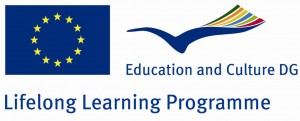 The EC has announced funding is available under the Transversal Programme. The aim is to promote European cooperation in fields covering two or more sub-programmes, and promote quality and transparency of member states’ education and training systems. The following relevant to BU staff are available and all have a deadline of 28.02.13
The EC has announced funding is available under the Transversal Programme. The aim is to promote European cooperation in fields covering two or more sub-programmes, and promote quality and transparency of member states’ education and training systems. The following relevant to BU staff are available and all have a deadline of 28.02.13
•KA1 multilateral networks: which support the creation of transversal networks to promote mutual policy learning and exchange of information on good practices and critical factors for the development and implementation of coherent and comprehensive approaches towards lifelong learning – funding is worth €200,000 per year over two or three years, but overall funding will not exceed €400,000;
•KA2 multilateral projects: which support promotion of language awareness and access to language learning resources – EU funding is worth a maximum of €200,000 per year over three years, but overall funding will not exceed €400,000, plus €25,000 for all third country partners combined;
•KA2 multilateral networks: which support contributions to promoting language learning and linguistic diversity – funding is worth a maximum of €150,000 per year over a maximum of three years, plus €25,000 for all third country partners combined.
•KA2 accompanying measures: which promote the objectives and results of languages projects – funding is worth a maximum of €150,000 over one year.
•KA3 multilateral projects: which support the development of innovative ICT-based content, services, pedagogies and practices for lifelong learning – EU funding is worth a maximum of €200,000 per year over three years, but overall funding will not exceed €400,000, plus €25,000 for all third country partners combined.
•KA3 multilateral networks: which support the building of partnerships and the networking of learning communities with a view to exchanging ideas and experiences related to ICT for learning – funding is worth a maximum of €150,000 per year over a maximum of three years, plus €25,000 for all third country partners combined.
Be part of the UK-Taiwan Academic-Industry & Technology Transfer Collaboration Forum
 The UK-Taiwan Academic-Industry & Technology Transfer Collaboration Forum, organised by the Science and Innovation Network Taipei and the British Council Taipei, will take place on 14 September 2012 at the Royal Society of Chemistry in London. The Forum is designed for:
The UK-Taiwan Academic-Industry & Technology Transfer Collaboration Forum, organised by the Science and Innovation Network Taipei and the British Council Taipei, will take place on 14 September 2012 at the Royal Society of Chemistry in London. The Forum is designed for:
- Researchers interested in building academic-industry links with top HEIs from Taiwan.
- Academics operating in technology transfer wishing to access manufacturers in Taiwan.
- Practitioners involved in university-business collaborations looking to expand networks in greater China.
- Administrators experienced in facilitating academics working with commercial sectors willing to exchange views with Taiwanese counterparts.
With support from the National Science Council in Taiwan, the forum provides an opportunity to exchange knowledge and experience of academic-industry cooperation and technology transfer, to generate ideas and forge partnerships. It also aims to identify opportunities for university-business collaborations, develop potential working models and schemes, and explore possible strategies for collaboration in technology transfer between the UK and Taiwan.
Confirmed participants from Taiwan include approximately 20 representatives from the Taiwan Top Universities Alliance, Academia Sinica, Industrial Technology Research Institute of Taiwan (ITRI), National Applied Research Laboratories (NARL) and the National Science Council (NSC).
To participate, read over the Indicative Programme and send the UK-TW Forum Reply Form to Ms Amy Chung at by 4 September 2012.
Start your EU career with a Leonardo grant!
 Funding is available under the Lifelong Learning Programme for Leonardo da Vinci transfer of innovation multilateral projects. The aim of this funding is to improve the quality and attractiveness of vocational education and training in participating countries by transferring existing innovations to new legal, systemic, sector, linguistic, socio-cultural and geographic environments through working with transnational partners. Funding is worth a maximum of €150,000 per year for one to two years, and the closing date is 31.01.13.
Funding is available under the Lifelong Learning Programme for Leonardo da Vinci transfer of innovation multilateral projects. The aim of this funding is to improve the quality and attractiveness of vocational education and training in participating countries by transferring existing innovations to new legal, systemic, sector, linguistic, socio-cultural and geographic environments through working with transnational partners. Funding is worth a maximum of €150,000 per year for one to two years, and the closing date is 31.01.13.
Don’t forget from my blogpost last week, that there is an info day in November which will cover the Lifelong Learning Programme and that we also have a successful Leonardo award holder here at BU, who is a great fan of the scheme; read Christos Gatzidis’ first Leonardoblogpost and second Leonardo blogpost for inspiration!
Success for a second time under the Leonardo Programme: GameWise
 Following the completion of the EU funded GameiT Leonardo Transfer of Innovation project (which attracted funding of 250,000 Euros in total) which focused on identifying, collecting, testing and distributing good practice in game-based learning thus producing a framework of game-based learning pedagogy targeted at teachers and trainers, running between 2009 and 2011, I was involved in another Leonardo bid this winter led by the same PI from Denmark (CV2).
Following the completion of the EU funded GameiT Leonardo Transfer of Innovation project (which attracted funding of 250,000 Euros in total) which focused on identifying, collecting, testing and distributing good practice in game-based learning thus producing a framework of game-based learning pedagogy targeted at teachers and trainers, running between 2009 and 2011, I was involved in another Leonardo bid this winter led by the same PI from Denmark (CV2).
The new project proposed was titled GameWise and concentrates on the European Commission’s recent acknowledgment of the need to pay more attention to new ways of unlocking Europe’s potentials of cultural and creative industries (CCIs). For Europe and other parts of the world, the rapid rollout of new technologies and increased globalisation has meant a striking shift away from traditional manufacturing towards services and innovation. Factory floors are progressively being replaced by creative communities, whose raw material is their ability to imagine, create and innovate. In this new digital economy, immaterial value increasingly determines material value, as consumers are looking for new and enriching “experiences”. The ability to create social experiences and networking is now a factor of competitiveness.
 The production of video games is central in this relation. These last years, the game industry has been on a fast track to become the world’s leading entertainment business. The majority of the production is, however, placed primarily in North America – and the focus is on games designed only for entertainment purposes. But a new way of doing business is on the rise: games made for other purposes than mere entertainment – e.g. learning, training, recruiting etc. The general term for this category of games is ‘serious games’, although also often referred to as applied gaming or gamification.
The production of video games is central in this relation. These last years, the game industry has been on a fast track to become the world’s leading entertainment business. The majority of the production is, however, placed primarily in North America – and the focus is on games designed only for entertainment purposes. But a new way of doing business is on the rise: games made for other purposes than mere entertainment – e.g. learning, training, recruiting etc. The general term for this category of games is ‘serious games’, although also often referred to as applied gaming or gamification.
This project is then set to attempt to transfer the related to the above results that have been made under individual partners involved to the rest of the partnership and thus, via the exchange of practices amongst the consortium, explore the creation of new jobs in Europe by the transfer and adaptation of a model for closer cooperation between VET (Vocational Education and Training) institutions and the surrounding world of work.
 The GameWise project I am happy to inform has now been successful in attracting funding and is set to run from the 1st of September 2012 to the 1st of September 2014. The total funds attracted are 250,000 Euros with 37,900 of that allocated to BU. Partners include institutions from a range of countries such as Spain, the Netherlands and Norway.
The GameWise project I am happy to inform has now been successful in attracting funding and is set to run from the 1st of September 2012 to the 1st of September 2014. The total funds attracted are 250,000 Euros with 37,900 of that allocated to BU. Partners include institutions from a range of countries such as Spain, the Netherlands and Norway.
I will post updates on GameWise occasionally once the project officially begins; meanwhile, I would definitely recommend colleagues look into the Leonardo calls for next year (the next one is I believe for January 31st 2013), these are part of the Lifelong Learning Programme and squarely focused on vocational education (as you can probably surmise from the GameWise project description above). As vocational teaching has traditionally been a BU strength, schemes such as the Leonardo one are an obvious EU funding avenue which could lead to successful results.
Erasmus opportunities
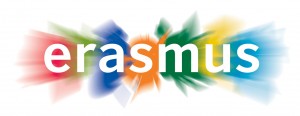 Erasmus intensive programmes facilitate student mobility for studies and placements and staff mobility. Projects funded under this programme will encourage education, vocational education and training. The Erasmus programme enables students to study abroad and supports collaboration between higher education institutions. The following are available with a closing date of March 2013:
Erasmus intensive programmes facilitate student mobility for studies and placements and staff mobility. Projects funded under this programme will encourage education, vocational education and training. The Erasmus programme enables students to study abroad and supports collaboration between higher education institutions. The following are available with a closing date of March 2013:
•intensive programmes: lasting for between 10 continuous days and six weeks, to bring together students and teaching staff from higher education institutions of at least three participating countries
•student mobility for studies: lasting for between three and 12 months, enabling students at higher education institutions to spend an integrated study period in another participating country (see BU website for Erasmus student exchanges)
•student mobility for placements: lasting for between two and 12 months, enabling students at higher education institutions to spend a placement period in an enterprise or organisation in another participating country (see BU website forErasmus work placements)
•staff mobility: lasting from one day to six weeks, enabling staff to spend a teaching period at a higher education institution in another participating country (see BU website for Erasmus staff mobility)
•staff mobility: lasting from five working days to six weeks, enabling teaching and other staff of higher education institutions to spend a period of training in an enterprise or organisation, such as an HEI, in another participating country (see BU website for Erasmus staff mobility)
Engineering Research Exchanges with China and India – funding available now!
 The Royal Academy of Engineering have announced their next round of Research Exchanges with China and India scheme funding. The scheme promotes collaboration between high quality engineering researchers in the UK and China/India and facilitates the expansion of networks of excellence in engineering research between the UK and China/India. It enables academic engineering researchers at Universities to travel to a Chinese or Indian academic Institution, and for China/India-based academic researchers to spend between 3 and 12 months at a UK Institution. Visits should be part of longer-term efforts to build UK-China/India relationships and to advance joint research. Funding of up to £24,000 per annum is provided (or part thereof for shorter visits). The deadline for applications is 12 October 2012.
The Royal Academy of Engineering have announced their next round of Research Exchanges with China and India scheme funding. The scheme promotes collaboration between high quality engineering researchers in the UK and China/India and facilitates the expansion of networks of excellence in engineering research between the UK and China/India. It enables academic engineering researchers at Universities to travel to a Chinese or Indian academic Institution, and for China/India-based academic researchers to spend between 3 and 12 months at a UK Institution. Visits should be part of longer-term efforts to build UK-China/India relationships and to advance joint research. Funding of up to £24,000 per annum is provided (or part thereof for shorter visits). The deadline for applications is 12 October 2012.
EU tenders announced for tourism, mental health, digital agenda and globalisation
 Transnational Tourism Products Based on Cultural and Industrial Heritage: DG Enterprise and Industry, has launched a call for proposals with a deadline of 28.09.12 for the provision of co-operation projects to create transnational tourism products based on cultural and industrial heritage. The final goal of the present call for proposals is to complement regional and national policies by supporting transnational cooperation and joint initiatives aiming at designing innovative transnational products in the fields of cultural and/or industrial tourism, with a view to:
Transnational Tourism Products Based on Cultural and Industrial Heritage: DG Enterprise and Industry, has launched a call for proposals with a deadline of 28.09.12 for the provision of co-operation projects to create transnational tourism products based on cultural and industrial heritage. The final goal of the present call for proposals is to complement regional and national policies by supporting transnational cooperation and joint initiatives aiming at designing innovative transnational products in the fields of cultural and/or industrial tourism, with a view to:
- Contributing to differentiate the European tourism offer by capitalising on and giving value to the shared cultural heritage; and
- Contributing to economic regeneration and job creation in declining (post) industrial regions through interregional and transnational cooperation projects in the field of tourism.
Mental Health in the Workplace: DG Employment, Social Affairs and Inclusion, has published a call for tenders for the provision of a study on mental health in the workplace with a deadline of 24.08.12. The study envisaged under this call for tenders has three main objectives:
- To provide the European Commission with information on the situation in the EU and the European Free Trade Association (EFTA) countries of Mental Health in the workplace. This will require an in depth checking of the current EU legal framework on workers health and safety protection;
- To develop a range of scenarios, and identify the pros and cons of each with the ultimate objective of providing a robust information base on which the Commission may rely in order to consider policy options aiming to ensure that workers are effectively protected from risks to their mental health arising from workplace related conditions and/or factors; and
- Produce a guidance document to help employers and workers alike fulfil their obligations and to include mental health considerations in occupational safety and health implementation.

Digital Agenda for Europe – Engagement for Growth and Jobs: DG Information and Society, has published a call for tenders regarding the Digital Agenda for Europe and the engagement for growth and jobs. The overall purpose of this call for tenders is to mobilise efforts and stimulate commitment around the use of ICT to deliver growth and jobs in Europe and to promote the digital single market. Deadline 19.08.12
International Dimension and Impact of Globalisation: DG Enterprise and Industry, has published a call for tenders regarding the international dimension and the impact of globalisation. The objective of this service contract is to study the international dimension of the e-skills strategy (especially the efforts to promote ICT professionalism) and to assess the impact of globalisation on high-level e-skills requirements (ICT practitioners’ skills and e-leadership skills), as well as to analyse major policy initiatives and best practices in the world. This should help to understand better the international dimension of e-skills in order to better anticipate change, envisage possible future co-operation and improve efforts to develop e-skills for Europe. Deadline 28.09.12
Work in Social Sciences? Have contacts in India and the EU? Then this could be for you!
 The first awards under the India-Europe research grants scheme for the social sciences have been made.
The first awards under the India-Europe research grants scheme for the social sciences have been made.
The Open Research Area (ORA) scheme is a multi-funded (including the ESRC) EU focused programme which supports collaborations between researchers in India and Europe. This year, the three-year research projects will each include an Indian partner alongside researchers from UK, French, German or the Netherlands. They will study areas such as ageing and wellbeing, the global accessibility of medicine and the cultural authority of science. You can read about the funded projects on the DFG (German funders) website.
The funding scheme is designed to provide top-up resources to established working groups, to enhance collaborative efforts as part of a cross-continent social sciences network. A new call for proposals will be launched in September and close in January 2013.
Find out more about the Lifelong Learning Programme
The Lifelong Learning Programme (LLP) is a great way to launch your EU career. It is run by the EC and provides opportunities for organisations, staff and learners involved in education and training across Europe to work together, learn from each other’s’ expertise, and widen their experience of other cultures and languages. The LLP is made up of several programmes, each aimed at a specific target group. The most relevant for BU staff are:
- Erasmus (focused on Higher Educaution)
- Leonardo (focused on Vocational Education and Training)
- Grundtvig (focused on non-Vocational Adult Education)
- Transversal (focused on Learning Professionals)
There is a useful free infoday being held in Brussels on November 12th which will provide info on the 2013 call for proposals and give practical advice on proposal preparation and submission. There will also be presentations from successful award holders and the infodays are always a key opportunity for networking with other interested academics from around the world so is a very valuable experience.
However, you may not be able to take time out of your schedule to attend so very helpfully the EC are also broadcasting this live online. You will also have an online ‘chat’ facility to search and get in touch with other people looking for partners to participate. If you aren’t free on the 12th of November, you will also be able to access the videos online afterwards.
Registration for both attending and receiving the webstream will be available in September; you can keep an eye on the EACEA webpage for this opening. You can also whet your appetite for this funding programme by reading our successful Leonardo grant holder Dr Christos Gatzidis’ experience of participating in his excellent blogpost.
The deadlines for the programme this year are 03/12/2012, 16/01/2013, 31/01/2013, 01/02/2013, 15/02/2013, 21/02/2013, 28/02/2013, 08/03/2013, 28/03/2013, 30/04/2013, 17/09/2013











 Upcoming opportunities for PGRs – collaborate externally
Upcoming opportunities for PGRs – collaborate externally BU involved in new MRF dissemination grant
BU involved in new MRF dissemination grant New COVID-19 publication
New COVID-19 publication MSCA Postdoctoral Fellowships 2024
MSCA Postdoctoral Fellowships 2024 Horizon Europe News – December 2023
Horizon Europe News – December 2023